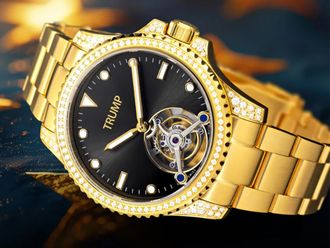
Beijing: China's best-known entrepreneur, e-commerce billionaire Jack Ma, made his fortune by taking big risks.
The former English teacher founded Alibaba Group in 1999, when China had few internet users. Online payments service Alipay launched five years later, before regulators said such businesses would be allowed. Both long shots grew to dominate their industries.
Ma's latest gambit backfired after he called regulators too conservative in an Oct. 24 speech and urged them to be more innovative. They halted the impending stock market debut of Ant Group, an online finance platform that grew out of Alipay. Alibaba's share price sank, possibly costing Ma his status as China's richest tycoon.
Since then, the normally voluble Ma has stayed out of the public eye, canceled a TV appearance and avoided social media. That has prompted a flurry of speculation about what might happen to Ma, China's biggest global business celebrity and a symbol of its tech boom.
``The Jack Ma Era is ended,'' wrote a blogger under the name Yueyue Talks Technology. ``It's too late to say goodbye.''
Spokespeople for Alibaba and Ant didn't respond to questions about why Ma hasn't appeared in public.
Dominance in retailing
Some see Ma's travails as a warning. But finance experts said President Xi Jinping's government already was uneasy about Alibaba's dominance in retailing. As for Ant, regulators worried it might add to financial risks seen by the ruling party as one of the biggest threats to China's economic growth.
Shaun Rein, a business consultant in Shanghai who said he meets Alibaba managers and people who know Ma, said none of them reports the billionaire is in legal trouble.
``They spanked him. He's learned his lesson, and that's why he's been quiet for the past two months,'' said Rein, founder of China Market Research Group. ``Some of his friends told me they can't believe how stupid he was.''
Ma, 56, stepped down as Alibaba's chairman in 2019 but is part of the Alibaba Partnership, a 36-member group with the right to nominate a majority of its board of directors. He is one of the biggest shareholders.
Ma irked regulators with the speech at a business conference in Shanghai attended by some of the regulators he was criticizing. Chinese Vice President Wang Qishan also was in the audience.
Ma complained regulators had an antique ``pawnshop mentality'' and were hampering innovation, according to Chinese media. He appealed to them to support unconventional approaches to make it easier for entrepreneurs and young people to borrow.
``The race tomorrow will be a race of innovation, not regulatory capabilities,'' Ma said, according to the Hong Kong newspaper Apple Daily.
That clashed with the ruling party's marathon campaign to reduce surging debt that has prompted fears about a possible financial crisis and led international rating agencies to cut Beijing's credit rating for government borrowing. At the same event in Shanghai, Wang warned new technologies improve efficiency but ``amplified financial risks," according to the business magazine Caixin.
Suspension of Ant's IPO
On Nov. 3, regulators suspended Ant's market debut. It would have been 2020's biggest, raising some $37 billion.
Alibaba's CEO later praised regulators in a possible attempt to repair relations. But Ma said nothing. The last posting on his Sina Weibo social media account is dated Oct. 17.
Alibaba Group shares traded in Hong Kong have fallen 19% since October. Ma's fortune, which peaked earlier above $60 billion, fell by more than $10 billion.
Alibaba, headquartered in Ma's hometown of Hangzhou, southwest of Shanghai, was founded to connect Chinese exporters with Western retailers. The company has expanded into online consumer retailing, entertainment and other areas.
Its finance arm, Yu'ebao, launched in 2013, attracted millions of customers in a market dominated by state-owned banks that focus on serving government industries. By 2017, Yu'ebao was the world's biggest money market fund with 1.2 trillion yuan ($170 billion) in assets, competing with state banks for deposits.
Ant Group has been ordered to overhaul its business before its market debut can go ahead.








